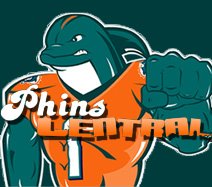 If you haven't heard about Brandon Jennings already, let me get you up-to-date. Jennings is a recent high school graduate and the nation's top point guard who wants to play in the NBA. Unfortunately, because of a change to the league's eligibility rules in 2006, in order to do so he must be 19-years-old or one year out of high school. Like most graduating seniors, Jennings agreed to sign and play NCAA basketball for one year with Arizona before being the next "one-and-done" player and to enter the NBA draft after his one and only season is complete.
If you haven't heard about Brandon Jennings already, let me get you up-to-date. Jennings is a recent high school graduate and the nation's top point guard who wants to play in the NBA. Unfortunately, because of a change to the league's eligibility rules in 2006, in order to do so he must be 19-years-old or one year out of high school. Like most graduating seniors, Jennings agreed to sign and play NCAA basketball for one year with Arizona before being the next "one-and-done" player and to enter the NBA draft after his one and only season is complete.Where Jennings deviates from the path that fellow phenoms Kevin Durant (Texas), Michael Beasley (Kansas State) and O.J. Mayo (USC) have laid out is his most recent change of mind to forgo college and his scholarship to Arizona. Instead, Jennings will play professionally in Europe for his "one year out of high school" and earn about $300K doing so. Smart move, I say.
There are two issues at hand here. The first is the NBA's eligibility rule itself; the second is Jennings' decision. Below, I will briefly explain the flaws in the rule, and the genius to Jennings' move.
The Rule: Flawed is the best word I can use to describe it and there are two major flaws that prevail--age and impact. To base eligibility on age, rather than readiness, is absurd in basketball. At 18 you can serve in the Army, vote for President and are considered a legal adult, yet you can't get a job you've been working towards for years? For those that will bring up the NFL, it is a much more physical sport and while a rare high school athlete may be able to go direct, more often than not at least two full seasons of college are needed to prepare them for the physicality and nuances of the next level.
Next, impact. Playing one year in college may help the "maturing" process of some players, but it does little to help the NCAA product, the universities that take these one-and-done players or even the NBA product. It gives the athletes an extra year to get injured and possibly ruin their future without getting a dime while implying NBA team officials are not intelligent enough to draft realizing their age and possible inexperience.
The Decision: I could not support Jennings' decision any more. Aside from earning money while taking the same injury risks he would face in the NCAA game, Jennings is putting himself up against better competition. He is also in Europe for a year and, let's be honest, who wouldn't love to do that after high school? A year in college will not provide him any useful education (let's be honest, freshman year is a joke) or benefit outside of being seen on television more often. Scouts have no problem considering European players for the NBA Draft as we've seen in recent years, especially if they're American to begin with. He won't have to worry about the risks of signing with an agent, illegal benefits or any of the other baggage that comes with playing in the NCAA.
The Fix: Two points here. (1) If the NBA wants the eligibility rule to work, it needs to be two years out of high school, not one. Align it with the NFL's rule, allow the athletes to have some impact on their college programs, actually develop their skills and get a legitimate education. (2) Stop being hypocritical. A 19-year-old from Europe who has been playing professionally since he was 16 doesn't cause the fluttering of an eye, but an 18-year-old planning to forego college and play in the same league as that other player does? Give me a break. Fix the system or get rid of it.


No comments:
Post a Comment